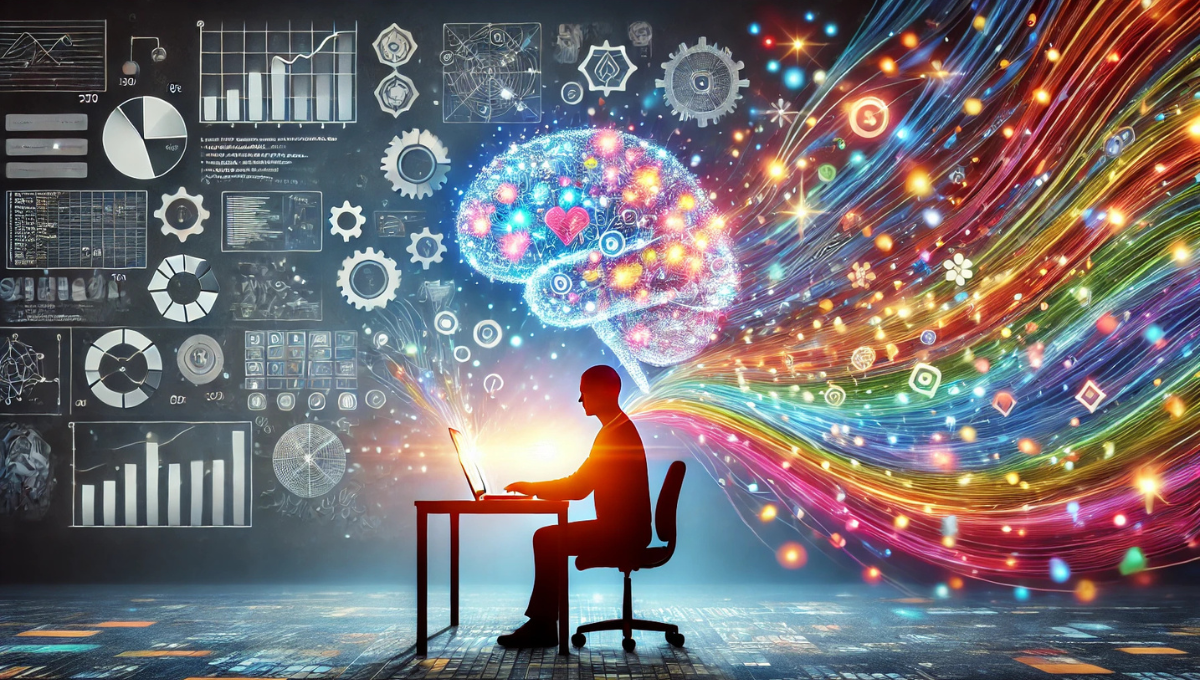Introduction
Coding isn’t just about writing lines of text. It’s a transformative skill that can rewire your brain. Whether you want to build a tech career, improve problem-solving, or simply keep your mind sharp—learning to code is your secret weapon.
At its core, coding combines logic, creativity, and persistence. It challenges your brain in ways that other skills can’t. Here at StartupHakk, we specialize in training software developers through licensed bootcamps and building custom software solutions.
So, why is coding such a game-changer? Let’s explore 12 ways it boosts your brainpower and supercharges your career.
1. Coding Enhances Problem-Solving Skills
Coding teaches you to approach problems systematically. When you write code, you break down complex tasks into smaller, manageable steps. This process is called “algorithmic thinking.”
Instead of panicking when faced with a challenge, you learn to focus on solutions. You approach every problem like a puzzle with a solution waiting to be found.
This mindset shift improves not only your coding but also your everyday life. Whether it’s troubleshooting software or solving personal challenges, coding builds resilience and logical thinking.
2. You Become a Better Learner
Coding forces you to adapt and learn continuously. New programming languages, tools, and frameworks emerge all the time. To keep up, developers need to stay curious and open to learning.
This constant learning improves neuroplasticity—your brain’s ability to form new connections. As a result, you absorb information faster and better.
The best part? This ability doesn’t stop at coding. It makes you a quick learner in other fields too. Coding trains your brain to stay sharp and adaptable.
3. Coding Boosts Logical Thinking
At its core, coding is about logic. You learn to anticipate outcomes, identify patterns, and streamline solutions.
Every line of code requires you to think analytically. You need to predict how inputs will affect outputs and solve problems step by step.
This logical mindset isn’t limited to coding. It applies to everyday life. Whether you’re planning a project or analyzing data, coding sharpens your ability to think clearly and make better decisions.
4. Coding Improves Memory
Remembering syntax, functions, and processes strengthens your brain. Coding challenges your memory the same way playing music or learning a new language does.
Over time, this practice improves both your short-term and long-term memory. Studies show that activities like coding enhance brain function and retention.
By learning to code, you’re not only mastering technical skills but also giving your memory a workout.
5. Coding Sharpens Creativity
Some people think coding is rigid. In reality, it’s one of the most creative fields out there. Every coding problem has multiple solutions. Finding the best one often requires innovation and out-of-the-box thinking.
Think of coding like playing an instrument. You follow certain rules, but there’s room for personal expression and creativity.
Coding lets you create websites, apps, games, and tools that solve real-world problems. It’s the perfect mix of structure and imagination.
6. Coding Teaches Discipline and Persistence
Coding isn’t always easy. There will be times when your program doesn’t work, and frustration creeps in. But coding teaches you to persist through challenges.
When something breaks, you troubleshoot, debug, and try again. This discipline builds a growth mindset, helping you tackle problems in other areas of life.
Persistence is one of the most valuable skills coding teaches. It trains you to never give up until you find a solution.
7. Coding Helps You Build Better Systems
Coders constantly look for ways to improve systems. Whether you’re optimizing software or automating processes, coding teaches you to think like a systems architect.
This mindset carries over into real life. You start identifying inefficiencies and finding ways to improve workflows, both at work and at home.
For example, coding can help you organize tasks, streamline routines, or boost productivity. You’ll approach every challenge with a systems-driven perspective.
8. Coding Helps You Adapt to Change
The tech world changes quickly. New tools and frameworks emerge all the time. As a coder, you learn to adapt to these changes and embrace new technologies.
This adaptability makes you future-proof. You become comfortable with learning new skills on the fly.
In today’s fast-paced world, the ability to adapt is priceless. Coding prepares you to thrive in industries that constantly evolve.
9. Learning to Code Strengthens Collaboration
Coding is a team effort. Whether you’re working on open-source projects or with a development team, coding teaches you to collaborate effectively.
You’ll learn how to share ideas, communicate solutions, and learn from others. Collaboration makes your solutions better and your skills sharper.
In any workplace, teamwork is essential. Coding equips you with the tools to work well with others and solve problems together.
10. Coding Is a Lifelong Skill
Coding is a skill that grows with you. As you learn new languages and tools, your knowledge expands. Each new skill builds on what you already know.
Unlike some skills that become outdated, coding remains relevant as technology evolves. It’s a long-term investment that pays off for years to come.

Whether you want to launch a startup, build tools, or enhance your career, coding opens doors that stay open for life.
11. Coding Makes You More Marketable
Employers value coding skills, even in non-technical roles. Knowing how to code demonstrates analytical thinking, problem-solving, and persistence.
In a competitive job market, coding gives you an edge. It makes you stand out as someone who can think logically and adapt quickly.
Even if you’re running your own business, coding helps. You’ll have the technical knowledge to optimize workflows, build tools, or automate tasks.
12. Coding Promotes Mental Resilience
Coding isn’t easy, and that’s a good thing. It teaches you how to handle frustration and push through challenges.
When you fail, you debug. When you get stuck, you keep trying. This process builds mental toughness and confidence.
Over time, coding strengthens your ability to take on bigger challenges. You’ll face problems head-on, knowing you have the skills to solve them.
Conclusion
Learning to code is more than a technical skill—it’s a mental upgrade. It boosts problem-solving, memory, and creativity while teaching you discipline and adaptability.
At StartupHakk, we’re passionate about helping you unlock these benefits. Whether you’re looking to learn coding in our licensed bootcamp or optimize your company’s systems with custom software solutions, we’re here to help.




